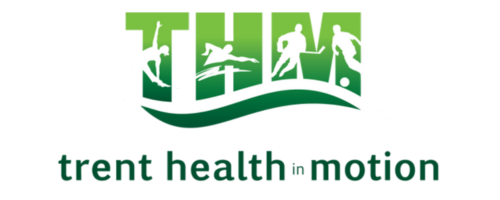Debunking Common Myths About Physiotherapy | Trent Health in Motion
Are you suffering from nagging pain? Is the pain preventing you from living your life to the fullest? If so,
physiotherapy
can help.
Physiotherapy is an evidence-based healthcare profession focused on the assessment and treatment of health conditions and injuries affecting the neuromusculoskeletal system, and it is helping both athletes and us mere mortals live — and move — pain-free.
The best part is it is completely natural. Yes, that means no drugs or surgery and it comes with no downtime, so you can get back to your life immediately. So, there’s basically no downside.
But in today’s day and age, information is everywhere. Everyone is an expert, from your high-school best friend to the salesman at your door. That is why you may have heard some myths about physiotherapy that are keeping you from a pain-free life.
The adage, “don’t believe everything you hear,” holds truer today than ever before. Here, the experts at Trent Health in Motion debunk the four most common myths about physiotherapy and the truth behind them.
Read on to learn more.
Physiotherapy is an evidence-based healthcare profession focused on the assessment and treatment of health conditions and injuries affecting the neuromusculoskeletal system, and it is helping both athletes and us mere mortals live — and move — pain-free.
The best part is it is completely natural. Yes, that means no drugs or surgery and it comes with no downtime, so you can get back to your life immediately. So, there’s basically no downside.
But in today’s day and age, information is everywhere. Everyone is an expert, from your high-school best friend to the salesman at your door. That is why you may have heard some myths about physiotherapy that are keeping you from a pain-free life.
The adage, “don’t believe everything you hear,” holds truer today than ever before. Here, the experts at Trent Health in Motion debunk the four most common myths about physiotherapy and the truth behind them.
Read on to learn more.
Myth 1: Physiotherapy is Painful
Nothing is more off-putting than a painful treatment, no matter how beneficial it may be. Luckily, physiotherapists have the education and experience to help reduce and even eliminate your pain in many cases.
Physiotherapy treatment of acute and chronic injuries can help to promote your body’s natural healing processes. Physiotherapists will always prioritize your comfort and will work with you to achieve your individual goals, which may often include pain relief.
In some cases, clients may experience some mild soreness after a physiotherapy appointment. However, this is usually just a mild intensity of soreness and should resolve within 24-48hrs. This is similar to the ‘good kind’ of muscle soreness that you might experience following a good workout, which indicates that the body is adapting and responding to treatment. If you experience any more intense symptoms, your physiotherapist can work with you to modify your treatment to lessen the intensity of any uncomfortable symptoms.
Physiotherapy treatment of acute and chronic injuries can help to promote your body’s natural healing processes. Physiotherapists will always prioritize your comfort and will work with you to achieve your individual goals, which may often include pain relief.
In some cases, clients may experience some mild soreness after a physiotherapy appointment. However, this is usually just a mild intensity of soreness and should resolve within 24-48hrs. This is similar to the ‘good kind’ of muscle soreness that you might experience following a good workout, which indicates that the body is adapting and responding to treatment. If you experience any more intense symptoms, your physiotherapist can work with you to modify your treatment to lessen the intensity of any uncomfortable symptoms.
Myth 2: Physiotherapy is Only for Chronic Pain or Injuries
A widespread misconception about physiotherapy treatment is that it is beneficial only for chronic pain or injuries. But, this is simply not true. Physiotherapy is a wide-ranging treatment that covers various domains, including neurological conditions, post-surgical rehabilitation, women’s health, and more.
Physiotherapists can also help athletes maximize their performance or prevent injuries. So, it is as much a preventative measure as it is a treatment.
Physiotherapists can also help athletes maximize their performance or prevent injuries. So, it is as much a preventative measure as it is a treatment.
Myth 3: Physiotherapy Isn’t Covered By Extended Health Benefit Plans
Physiotherapy is just as much a health and wellness treatment as a GP visit. Most extended health plans do cover it because of this.
The extent of coverage, though, can vary between service providers. For instance, some provide full coverage, while others cover only some of your sessions. Thus, it’s always a good idea to check in with your insurance company beforehand.
The extent of coverage, though, can vary between service providers. For instance, some provide full coverage, while others cover only some of your sessions. Thus, it’s always a good idea to check in with your insurance company beforehand.
Myth 4: You Need a Doctor’s Referral to See a Physiotherapist
Physiotherapy is a proven, evidence-based treatment that is entirely safe and free from drugs and invasive surgery. In other words, you don’t need a doctor’s referral to see a physiotherapist.
You can simply schedule your appointment and walk-in for your session.
Most doctors recommend seeing a physiotherapist regularly. It can help you prevent injury and pain, negating the need for a doctor’s visit down the line. It’s a true win-win.
Most doctors recommend seeing a physiotherapist regularly. It can help you prevent injury and pain, negating the need for a doctor’s visit down the line. It’s a true win-win.
You Don’t Deserve To Live In Pain
Pain is debilitating. It is a constant source of anguish that can prevent you from doing the things you love. But it shouldn’t be because no one deserves to live with pain.
Luckily with the recent rise in the popularity of physiotherapy, your treatment options are no longer limited to invasive surgery if you want to be pain-free.
Are you looking to book a life-changing appointment or, simply wondering, “what does a physiotherapist do?’ If so, call 705-741-4758 or visit our website to book a consultation today.
Luckily with the recent rise in the popularity of physiotherapy, your treatment options are no longer limited to invasive surgery if you want to be pain-free.
Are you looking to book a life-changing appointment or, simply wondering, “what does a physiotherapist do?’ If so, call 705-741-4758 or visit our website to book a consultation today.










